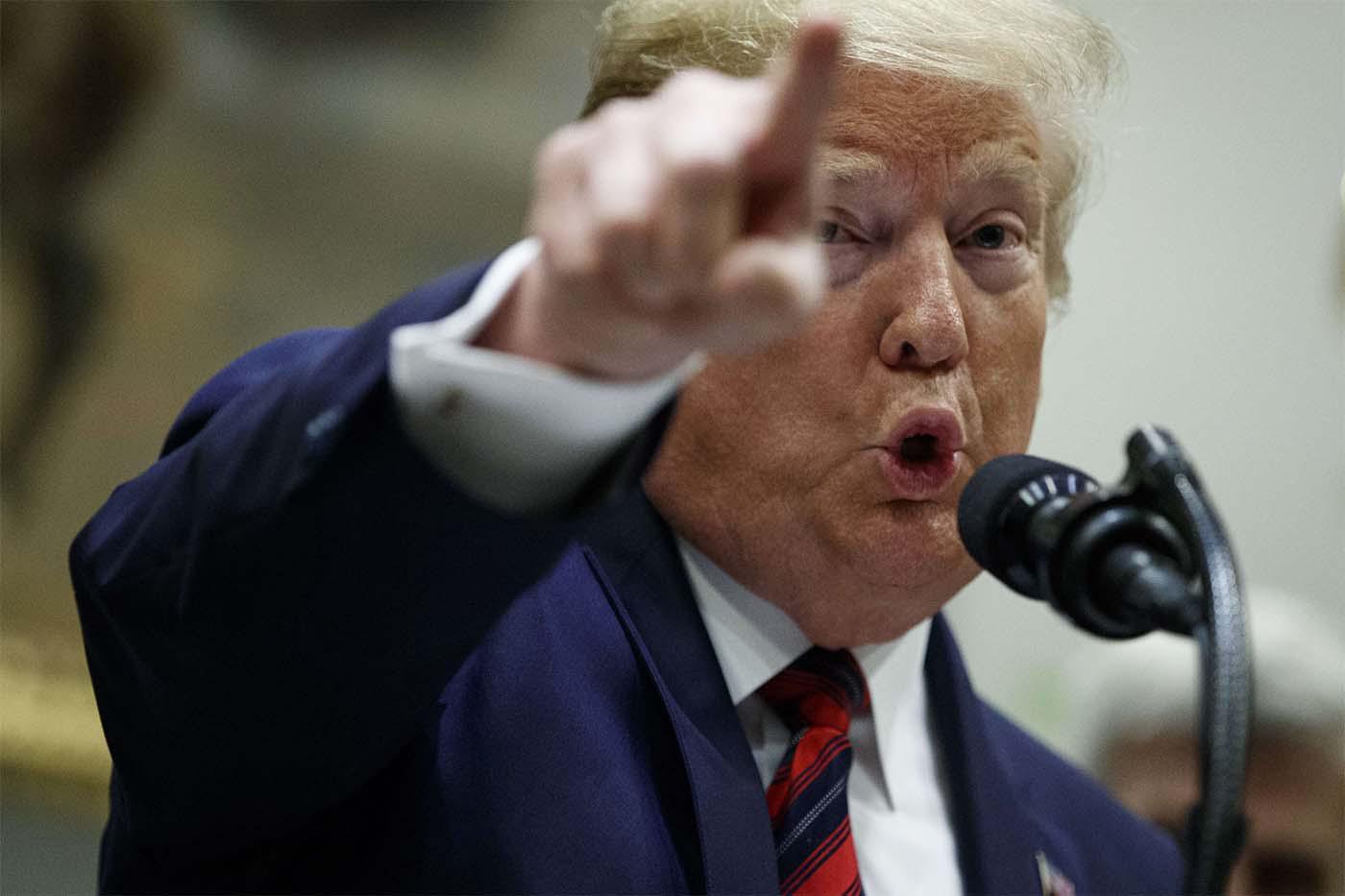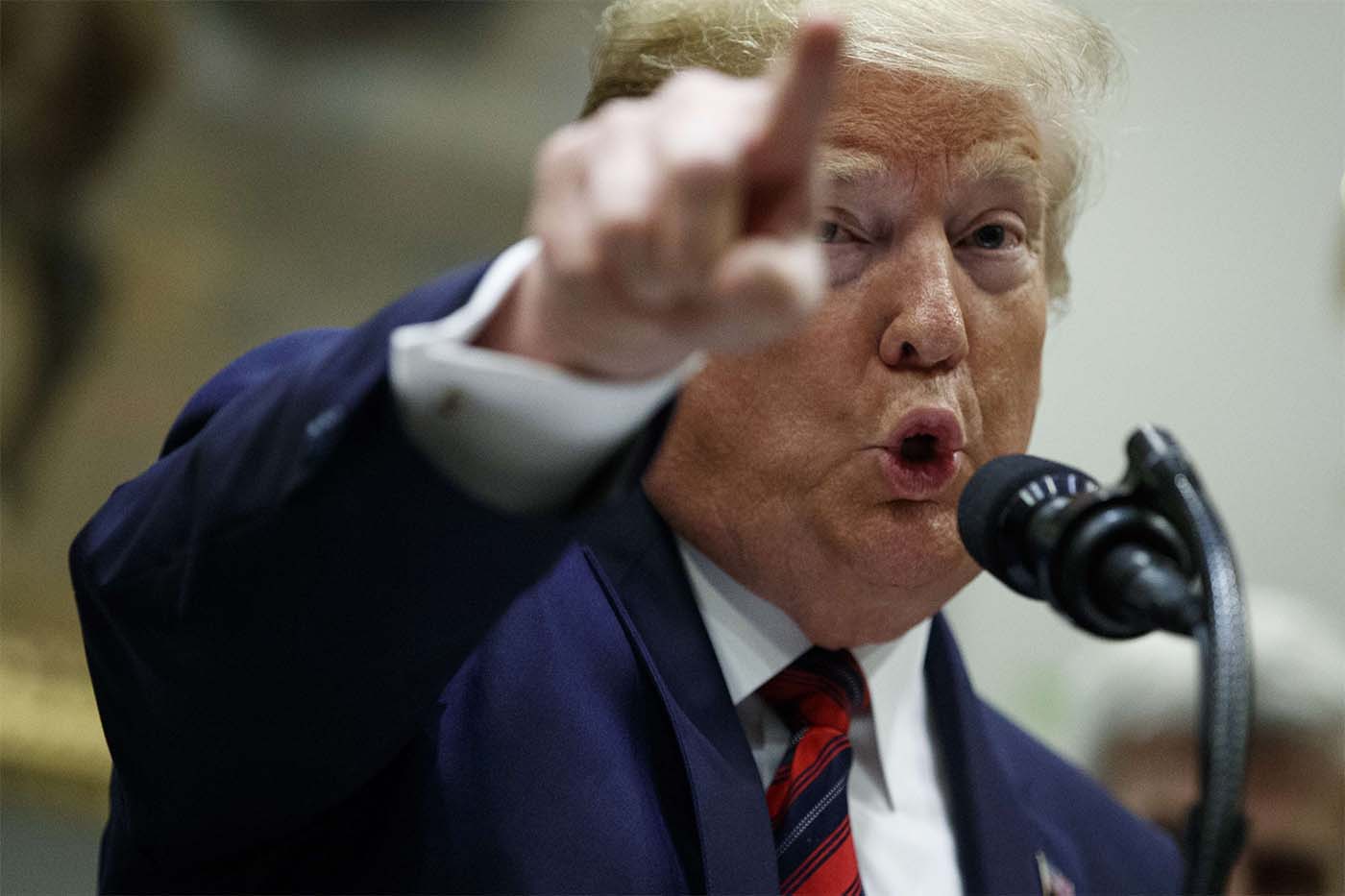How Trump’s move might impact Maghreb’s Islamists
I wonder if the leaders of political Islam in the Arab world in general and in the Maghreb countries in particular were surprised by White House spokeswoman Sarah Huckabee Sanders’s statement on the United States’ possible move to designate the Muslim Brotherhood as a terrorist movement.
The decision would have significant implications for Islamist movements in the Maghreb countries, which are either preparing for elections, as in Tunisia, or for active participation in the political process, as in Libya and Algeria.
The issue is particularly relevant for Tunisia’s Ennahda Movement, which is considered part of the current of political Islam. Ennahda, which analysts say could perform well in parliamentary and presidential elections this year, given the fragmented nature of rival parties, will have to reconsider its strategies in light of the possible US action.
The US move to designate the Brotherhood a foreign terrorist organisation could put the spotlight on controversial issues Ennahda has tried to suppress. Among them are allegations that Ennahda formed a secret security apparatus, played a role in the assassinations of politicians Chokri Belaid and Mohamed Brahmi and helped recruit and send fighters to Syria and Iraq when Islamists held power after 2011.
In addition, hundreds of Islamist charities and proselytising societies in Tunisia have been accused of money laundering and supporting terrorism.
Should these issues resurface before the elections, Ennahda’s political performance might be affected by a likely decrease in its reservoir of loyal voters.
Such issues could prompt Ennahda to search for a way out of the contentious files and consider the goal of staying in parliament and not participating in a government after the 2019 elections.
It could also lead to pro-Ennahda votes dropping to less than 20%. In such a scenario, the movement would be forced to accept a new party law in Tunisia banning parties formed based on ethnic, religious or linguistic grounds, plus a second law concerning civil society associations and their funding and activities.
The US move would also have repercussions for other Islamist movements in the Maghreb.
The Algerian branch of the Muslim Brotherhood — the Movement for Society of Peace, aka Hamas — stands to be further weakened.
The party, which struggled under the leadership of its late founder Mahfoud Nahnah, has taken a hit with the outbreak of popular protests. The movement split after it decided to be part of the government during the rule of former President Abdelaziz Bouteflika and is now trying to create an expanded front to enter elections scheduled for July. However, its chances of winning anything substantial in the elections are very slim because it has no convincing programme.
Today, most of the movement’s voting base is made up of middle-aged people and there are rumours, because of their relations with Bouteflika’s brother Said, that some of its leaders are corrupt
With the United States’ possible decision to classify the Muslim Brotherhood as a terrorist movement, the Islamist current in Algeria would be shunned by most of the country’s disgruntled youth.
In Libya, political Islam has not left a good impression on the population, either.
Libya’s branch of the Brotherhood’s alliance with the Libyan Islamic Fighting Group and Ansar al-Sharia contributed to the destabilisation of the country. These allied Islamist formations became part of the so-called “Armours” involved in destroying Benghazi, Sirte, Derna and other cities
They are involved in the battle for Tripoli against Field-Marshal Khalifa Haftar’s Libyan National Army in a desperate attempt to impose their authority.
Islamists in Libya have been deeply implicated in corruption and most of their leaders, wanted on criminal charges at home, have fled the country.
If the United States follows through on the terror designation, it will likely seriously damage Islamists’ electoral base in Libya. Analysts estimated that, if Libya’s Islamists participate in the next elections, they would be unable to win 7% of the vote.
In Morocco, the potential US designation is likely to have less of an effect on Islamists because it is the king’s responsibility to monitor the religious establishment there.
It is the Justice and Development Party that represents the Islamist current in Morocco and while the party may share common ideological grounds with the Muslim Brotherhood, it has no organisational ties to the Brotherhood.
In Mauritania, the US move could have important implications for presidential elections in July.
Two candidates are vying for the presidency: the government’s candidate Mohamed Ould Cheikh Mohamed Ahmed and the opposition’s Sidi Mohamed Ould Boubacar. The latter is a serious contender and is supported by Tawasol, the Brotherhood’s arm in Mauritania, and other parties. With the potential US decision regarding the Brotherhood, the victory is very likely to go to the ruling party’s candidate.
The Maghreb region is expecting fundamental changes that are likely to be detrimental to political Islam and its allies. Whether the US decision is adopted or postponed, the current of political Islam in Tunisia, the Arab world and the Maghreb will fall into a structural, not circumstantial, crisis that is likely to last for decades, not years.
Alaya Allani is professor of history at Monouba University in Tunis.
Copyright ©2019 The Arab Weekly







